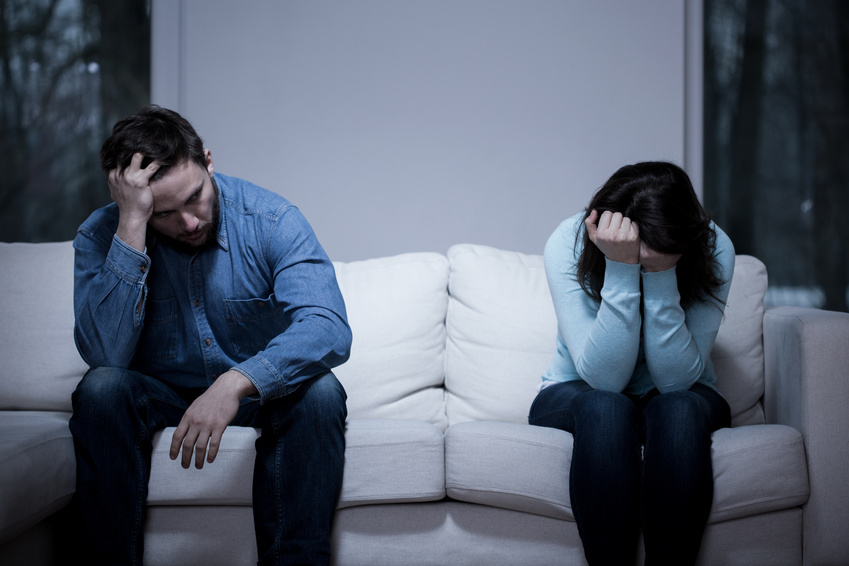How do marriage and couples problems develop and evolve?
This blog post is the first in a series of four posts that will take an in-depth look at how problems develop in intimate relationships.
Basically, it can be said that intimate relationship problems are caused and maintained by a combination of:
This initial post will cover personal differences. It could also be helpful for couples who are at the point of considering marriage counseling, as a way of assessing where they stand in the relationship prior to reaching out for professional help.
So, what’s the big deal about personal differences?
Well, we are all different people, so it makes sense that we will all have differences, right? In fact, we are often drawn to others who have some distinct differences from us. The old adage states that “opposites attract”, which is often very true. The problem is that differences that draw us together can sometimes become a source of disagreement.
Take, for example, Joe and Sue. Initially Sue was really attracted to how laid-back, calm, “take it as it comes”, and spontaneous Joe was. In fact, it really seemed to balance her and the fact that she viewed herself as being a little bit “uptight”. Joe was incredibly attracted to how put-together, organized, and ambitious Sue was. She seemed like the kind of woman who really knew what she wanted in life and had her stuff together. This really seemed to ground him and complement his more laid back, laissez faire temperament.
Unfortunately, over time these differences have created some problems. These days, Joe has begun to think of Sue as being controlling, uptight, and nagging. Sue has begun to experience Joe as not caring, lazy, distant, and not engaged. See how this could become a problem? Finally, they have gotten to the point where they consider counseling to be their only option for trying to repair their relationship.
How do our differences show up and evolve in our relationships?
Often we start our relationships with pre-existing differences (though some can emerge later on). However, early in relationship development, we tend to shield each other (or be blinded to) some of our differences. We put on our best face to impress, we give the benefit of doubt, and we are less likely to see something as a problem. However, over time we begin to spend more time together, feel more comfortable around each other, and these issues begin to show themselves to us for what they are – sources of perceived incompatibility.
Additionally, our differences may become stronger, or weaker, over time. One thing is for sure though, and that is that we often begin to see our partner’s differences from us as less and less appealing and possibly even begin to see ourselves as less compatible.
So if differences are so bad, should we just try to find someone who is similar?
Well, it’s probably very likely that we also have a number of similarities with our partner. Research indicates that we often choose our partners based on similarity in age, background, and values. This makes a lot of sense and can give us increased chances for growing towards each other.
However, similarities can also cause problems in relationships. Take Joe and Sue from above and imagine that they both shared the laissez faire attitude that Joe is known for. Over time them may begin to have problems organizing their life and this could cause conflict between them as they begin to experience frustration and bitterness that the other person is not doing more to handle the stressors of planning and managing their life. Conversely, partners who are both goal-oriented and organized might handle the ins-and-outs of their household well, however, they may lack spontaneity and less opportunity to engage in intimacy enhancing activities.
So, both differences and similarities are important? What should we do then?
Well, it’s important to remember that we are all different people and both similarities and difference will show up in whatever relationships we have. We all have unique histories and genetic differences that shape who we are, so we’re never going to find someone who is an exact clone of ourselves.
Our differences are the fodder of our arguments. They’re what we argue about, and they often aren’t easy to change. It’s important to begin understanding how these differences might actually provide something positive to the relationship.
It’s also important to learn to take a step back and try to understand these differences for what they are – personality differences. It’s not that Joe is a jerk (though he may act like one sometimes). It’s that he’s a different person who interacts with the world in different ways.
It’s also important to remember that relationships are not easy. When couples reach an impasse and have gotten to the point where they are highly polarized against each other, it can be very important to seek out professional marriage counseling. Evidence-based therapy (therapy that has been proven to be effective) has shown itself time and time again to be extremely helpful in helping many couples to reclaim their relationship and to build new skills and abilities to communicate about these differences.
